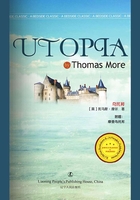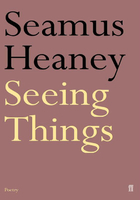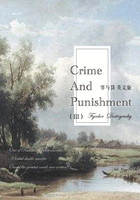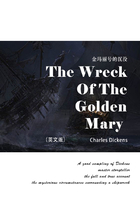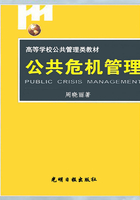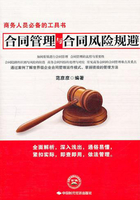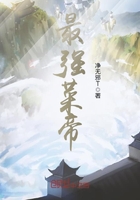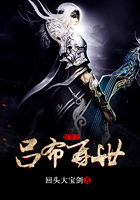Why Is That Important?
When attempting to move people from where they are right now toward something else, we often ask what is important to them? Good question, but I think not the core question. Ask them what and they will tell you the object, the person, the destination, the goal. That's helpful, but it stands in front of what they want even more deeply, does not reach for the source of the motivation. We know what they want, but why? For example, teenagers often want cars. What they want is pretty clear: a car. But why? Recognition, independence, excitement, freedom, fulfillment, attractiveness, friends—these are the whys behind the goal of car; these are continuing sources of motivation for these kids, whether they have a car or not.
And, when you want to help people in your workplace move from their current reality, you need to appeal to the whys behind their goals. Sure, talk with them about what they want, but more important, find out why they aspire to that goal. “Why is that important?” calls forth the deeper reasons and feelings behind the goal. Responses to the what question elicit concrete, material, short-term goals; the why question yields the heartfelt convictions and values that support the more tangible goals in life.
The top of the GTD model, the WANTS, are an essential element of change. PEOPLE value more than the current REALITY in which they live; they have WANTS that pull them toward somewhere, something, else. These WANTS provide motivation to change—their motive for action. Their WANTS are full of expectations, hopes, aspirations, values, even dreams. The WANTS provide the attraction that causes us to build plans. Escaping the present REALITY does not provide enough constructive direction; running anywhere is not the same as running somewhere. Our WANTS give us direction. Whether we are talking about our dreams for our children, or our hopes for our neighborhood, or intent for our monthly civic club meeting, the shared sense of what we want together adds a vital, positive spark to our work.
Many of us are conditioned to a problem-solving approach to the world. We journey along our work and life path, exerting extra effort when a problem comes our way. Then we figure out what's wrong and, hopefully, fix it, allowing us to return to our “normal” path. Well, that is a bit simple for those of us who journey from problem to problem and seem to live in the fix-it mode. But whatever our pace and intensity, if our patterned response is fix it, we are missing the perspective and potential that can come with lifting our heads to look at what we want. Leading from the bottom, middle, or top of organizations is about helping others lift their heads toward what they want and then moving together in that direction.
Our wants can be as simple as “I want to leave this retreat feeling a lot better about what we are doing together” or “I want to find three of you who will help me with this project.” Or, as grand as “I want our community to be nationally recognized for our environmental accomplishment” or “I want us to know that we have contributed to world peace.” The essential point with wants is not their reasonableness or their measurability; it is their magnetism. To work, they must draw people forward together.
The peak of the GTD model is not about what is right or correct; it is not about what others think we should want; nor is it about what we think we should want. It is about what we want, and to find out we have to ask. Hidden wants mean hidden motivation and hidden yearnings. The link between WANTS and life meaning is strong. Just as you can clarify what you want as you pursue your life, so can a small group discuss their group life purpose together; and, so can a school or a company or a foundation. Together they can decide on the future they want to create.
The title and content of this book links to life meaning—whether it's a person, a council, or a not-for-profit organization. It is about getting work done and making meaning at the same time. Years ago, these considerations were unusual in the organization world. Now business journals and books write about ideals, purpose, meaning, hopes, vision, and dreams. The number of inspiring and aspiring bestsellers to supposedly hard-nosed business people indicates we are recognizing the energy and action that come with clarity about wants. We must continue to keep one eye on what we have and the other eye on what we want and its importance to us.
Let's look at some of the big-picture categories within which people's wants might fall:
Dreams Values Meaning
Fantasies Principles Ideals
Visions Accomplishments Aspirations
Life goals Mission Higher purposes
These wants are on the hopeful and ambitious end of the spectrum. Achieving them may take years. Many of them—though never fully realized—will be guiding stars through life. They have counterparts at work, but they are best thought of in life terms, as in “These are my dreams/goals/aspirations for my life.” This is what we are really reaching for, this is what all of our work dreams/goals/aspirations serve. Compelling, almost magnetic, forces draw us toward these grand wants. This is what we want most out of life; all of our daily actions (guided and misguided) point toward the fulfillment of these larger dreams. Although we may be focused on buying a house or finding a partner, our dreams are in play. The object of our immediate attention might be a promotion or a project, but something larger stands behind our effort. Whatever we do is in some way in service to what is deeply important in life. The pursuit of these grand wants makes our lives meaningful. You can help others in that pursuit. Discover what they want, why it is important, and what you could do together to move in that direction.
AN EXERCISE *
What Is Important
To get a deeper sense of your wants and their importance to you, take 10 minutes to write answers to these questions:
What do you do? Answer this question in one sentence.
Why is that important to you? Answer this question in one simple sentence.
And . . . Why is that important to you? Again, answer this question in one simple sentence.
And . . . Why is that important to you? Again, a simple sentence.
Look at your series of answers, each pursuing at a greater depth the answer to the previous question: In what direction are your answers leading? Are they pointing to anything? How would you describe the destination they are leading to? Write down a few words describing that destination.
Finally, what does this destination have to do with the reasons you do what you do? In other words, link back to the opening question in number 1.
Optional: Ask a friend or associate to answer the same series of questions—before you show your answers to them. Then compare your answers and talk about them.
Many people who have been through this exercise find their answers lead in the direction of deeper meaning, soul, purpose, values, and heart. Through the series of questions they consider the roots of why they do what they do. The questions lead them in the direction of what is truly important to them. They may not get there in these few questions, but they are pointed in that direction.
When people compare answers with others, they usually find that the same questions lead them toward the same place. It's at the level of the third or fourth or even sixth why that they discover their connection with others. This is what they want together. Getting things done requires discovering what people want together. The united wants—explicit or implicit—provide the shared motivation to really do something significant. Without it, people are just going through the motions. And that is why wants are at the top of the GTD model.
*Based on an exercise in Your Signature Path: Gaining New Perspectives On Life and Work by Geoff Bellman, Berrett-Koehler, 1996.)

